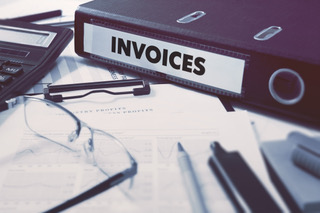1. Transactional “Whole Cycle” Trade Finance
The funding of “cross border” trade by third parties has been around since Egyptian and Roman times and has been used in the UK from the Elizabethan Tudor age until the present day. Arrangements have evolved into what is now available for 21st Century business owners whether it is to fund a large one-off order, a series of orders or just regular ongoing trading – that is buying goods from one country to be sold to a customer in another – although as well as Importing & Exporting the concept can equally be used to buy from a supplier and sell to customer who are both in the UK.
The good news for business owners is that funding can be made available for this type of Trading whether you are just setting up your business and wish to finance that very first transaction or are a long established multi-million turnover organisation seeking obtain extra funding lines to support growth. Trade Finance is also sometimes called Purchase Order Finance or Supply Chain Finance
How does the system work? Well firstly it’s very much about the transaction. So, a potential Trade Finance client needs to have a confirmed Purchase Order from a creditworthy end buyer (the customer). The funder will look at the transaction and once approved will be able to pay the original supplier on the client’s behalf, usually when the goods are ready to be shipped or sometimes on arrival in the UK. If the goods are coming to the UK the arrangement can optionally include the funder paying the Freight, VAT & Duty on the client’s behalf when they arrive. The funder is repaid when the goods are delivered to the end buyer (the customer) and a sales invoice is raised and sold (called assignment) to the funder. When the buyer (the customer) settles the invoice say 30 or 60 days after delivery the funder deducts the advances already made plus their fee and the client gets their profit on the deal. This is a very simple overview as these arrangements can be bespoke in many ways for each client or indeed for each transaction. Remember that whilst it’s a great way to import goods to the UK is also works where both the supplier and the customer are in different countries and the goods never actually enter the UK.
Things to consider:
- The funder will wish to know that your end buyer (customer) has credit rating to match the value of the order they are placing. Sometimes the funder will be able to Credit Insure the customer using their own policy (or the client’s).
- The funder will wish to understand who the originating supplier is, and if the client regularly buys from them and that they can be considered as a reliable source of goods.
- Depending on the goods, who the supplier is and perhaps the value of the transaction it may well be a requirement to have the goods inspected at the Supplier’s Factory – although many importers/overseas traders do this as a matter of course and have established local Quality Control arrangements in place.
- If the Supplier requires a deposit when the order is placed some funders will prefer the client to find this cash from their own resources whilst others may be willing to advance money for deposits. It will depend a great deal on the nature of the transaction, including trading history, the product and perhaps the margin between the buying and selling price.
- Usually, this arrangement is for finished goods (or nearly finished goods that maybe need some final low-cost processing – eg local packing or labelling) that can be delivered easily and quickly to the end buyer (the customer) without long delay. Sometimes it is possible to finance the purchase of major or key components for quick final assembly by the client.
- What is important is that the client needs to have good paperwork skills or find someone who has, to make sure they can support the transaction all the way through from order to final payment.
- Ideally the maximum advance that a funder will make (including if required Freight, Vat and Duty) should not exceed 80% of the end gross sales invoice value – ideally a little less. However, if the margin on a transaction is lower it may be that the funder will contribute the major portion of the buying costs with the client also contributing a smaller amount to make the deal work.
This type of arrangement is an excellent method of providing business owners with almost unlimited funding to support forward orders with the focus being on the transactions not on historic information and balance sheet assessment. Growth Finance full appreciate all aspects of these facilities and can guide you through the process of finding the best way to fund your trading going forward.
2. Invoice Finance
Invoice Finance (also known as Factoring, Invoice Discounting and Receivables Finance) is an arrangement whereby a business can “sell” (called an assignment) an unpaid invoice to a funder in return for an immediate cash advance with the balance being paid (less the funder’s fee) when the customer eventually settles the invoice.
UK origins of modern Invoice Finance began in the 1960’s and fast forward to the 21st Century we have sophisticated providers that combine the traditions of innovation and quality customer service with high-tech real-time 24/7 on-line interfaces for clients, where in some cases funding is released immediately the invoice is accepted on the system. It’s not just a UK business solution either. The latest Global statistics reveal world-wide Invoice Finance volume of 2,917BN Euros of which 68% relates to funding in Europe with the UK’s share being 329BN Euros. This is a funding solution that allows businesses of all sizes to maximise their cash-flow using a proven and established customer focused service.
What types of arrangement are possible?
- Funding just one invoice as a one-off arrangement
- Funding a series of invoices relating to a contract or order from a specific customer
- Funding invoices to different customers or one nominated customer from time to time
- Funding the whole sales ledger all of the time
Things to consider
- The invoice to be financed must be for goods or services already provided/delivered.
- The invoice(s) need to be correctly made out in the name of the customer who ordered the goods or services from you.
- The credit period offered to the customer should “normal terms” for the industry sector – for example 30 days or 60 days – sometimes longer up to 120 days or even much shorter credit periods 7 or 14 days.
- The funder will be interested in the credit rating of your customer(s).
- The invoice should not be overdue or delinquent or in dispute.
- Invoices for domestic UK sales and Exports can be financed.
- Different funders will have varying criteria, depending on the type of arrangement required and the potential client’s circumstances.
- Some funding arrangements could have long contracts eg 12 months whilst others might only have a 30 day minimum period or indeed no minimum period at all.
- The invoice(s) you wish to fund must not already be pledged to another lender.
- Facilities can sometimes include protection against bad debt – usually via a Credit Insurance policy (if you have your own policy that’s fine) if not, the funder will be able to arrange this or often simply include it as part of the arrangement. Again, this will depend on the structure of the facility – for example financing a single invoice for say £100,000 will likely need to be insured whereas invoices with small balances say under £2000 probably won’t.
- Where you have existing funding, for example a bank overdraft, mortgage or loan that may affect your ability to finance invoices to it’s really important to tell us about existing arrangements when we start working together.
Growth Finance team of experts will work with you to match your needs with the most appropriate funder.
3. Revolving Stock Finance
Stock Finance is also sometimes called Inventory Finance or simply Trade Finance.
The principle is that a funder provides a credit line to it’s client to purchase goods, (stock/inventory) which are to be resold at an unspecified future date. The advance made by the funder is repaid on an agreed future date or even on a regular monthly instalment basis. The concept has been around for centuries and until more recently tended only to be available for well-established companies with profitable track records and high balance sheet net worth. More recently as well as these large funding lines new players in the market have been willing to provide this type of arrangement for smaller businesses and at much lower levels of advance – down to say £50k as compared to traditional providers working in the sphere of funding lines of say £250k – £10m.
What to consider:
- Some funders will sometimes use the stock alone as security whilst others may rely on the credit rating of the client or even a mix of the two. For smaller funding lines director’s guarantees or a Debenture may also be sought. It’s very much each application to be considered individually.
- Usually, the funder will seek to have “title” to the stock until it is sold – they are various proven ways this can be achieved.
- In most, but not all cases, the cash advance is not made to the client but is a payment made to a supplier to settle an invoice. The supplier is paid by bank transfer on behalf of the client and usually the supplier is unaware of the arrangement.
- It is not uncommon for a funder to wish to have regular updates on the inventory (stock) levels, maybe monthly or quarterly and there are different methods used to achieve this.
- The stock may be stored at the client’s own premises or a third-party warehouse and is not always kept in the same country as the client. All of these should be explored when setting up a Stock Finance account.
- In the majority of situations, a Stock Finance facility will be complimentary to the client’s existing Banking or other funding lines.
- The stock being financed will be repaid based on the client’s “usual” business cycle although special arrangements can sometimes be agreed to finance seasonal sales or where extended credit terms are being offered to customers.
- A funder will be interested in the quality of the goods, their origin and “shelf life” as part of the initial New Business process
- A potential client will be expected to have good financial reporting systems and not be “distressed”, again all aspects of the client’s business will be taken into account in order to try to structure an arrangement that works for both Client & Funder.
- Some funders have the latest technology with on-line client portals for managing transactions whilst others will have more personalised arrangements with daily/weekly phone and email interaction with clients.
Summary
Stock Finance facilities work well for businesses that have continuous sales but do not always (or indeed ever) have confirmed forward orders. The end sale of the goods does not have to be Business to Business as retailers often like to have an independent Stock Finance line of Credit. It’s a highly flexible arrangement usually for finished goods, although Stock Finance can also work well for components or similar for assembly by the client. Larger lines can be used for commodities, especially for cross border trade. Whether stock is for sale in the UK or for Export this type of arrangement can provide that extra buying power either on a regular basis or simply from time to time.







